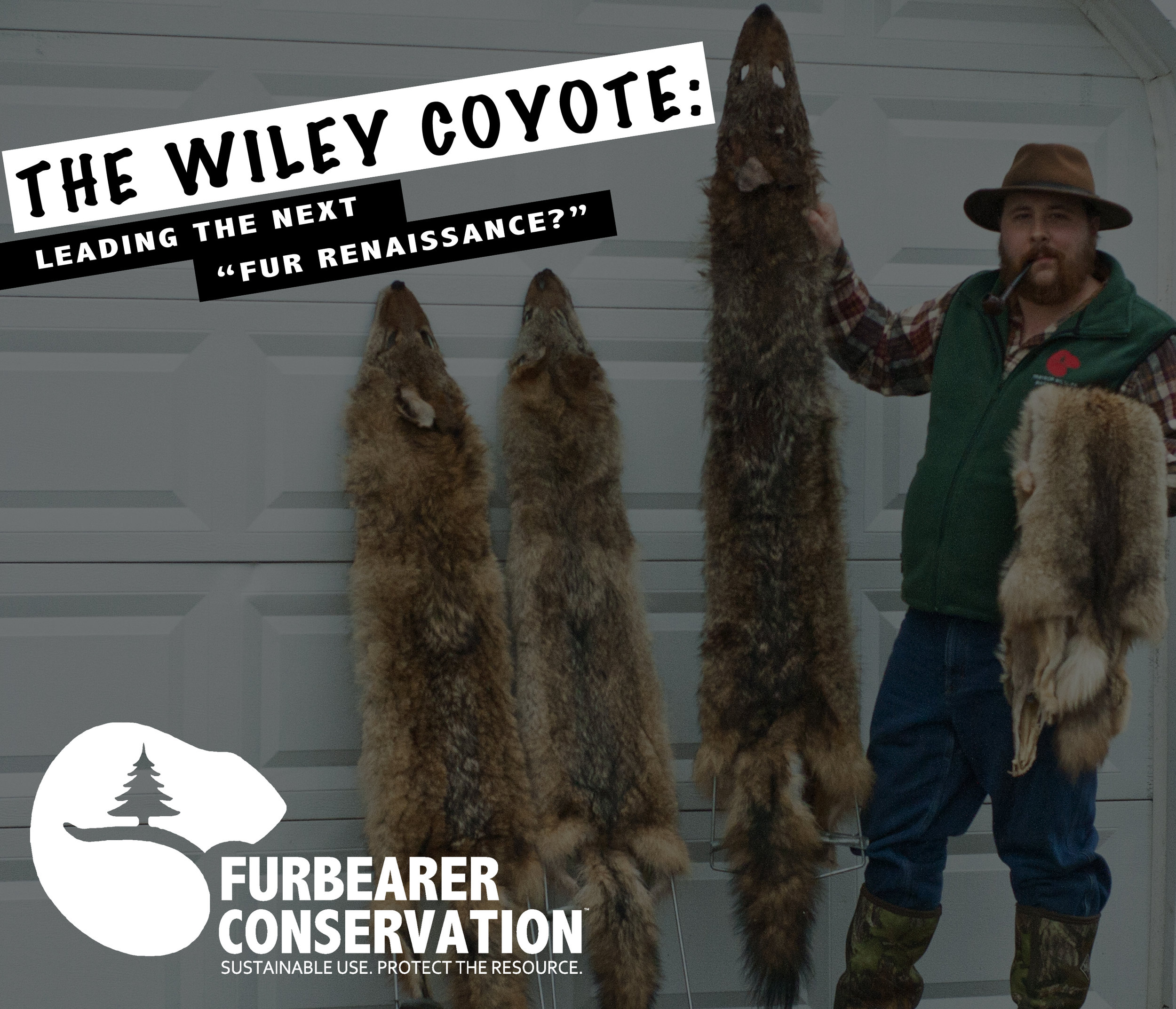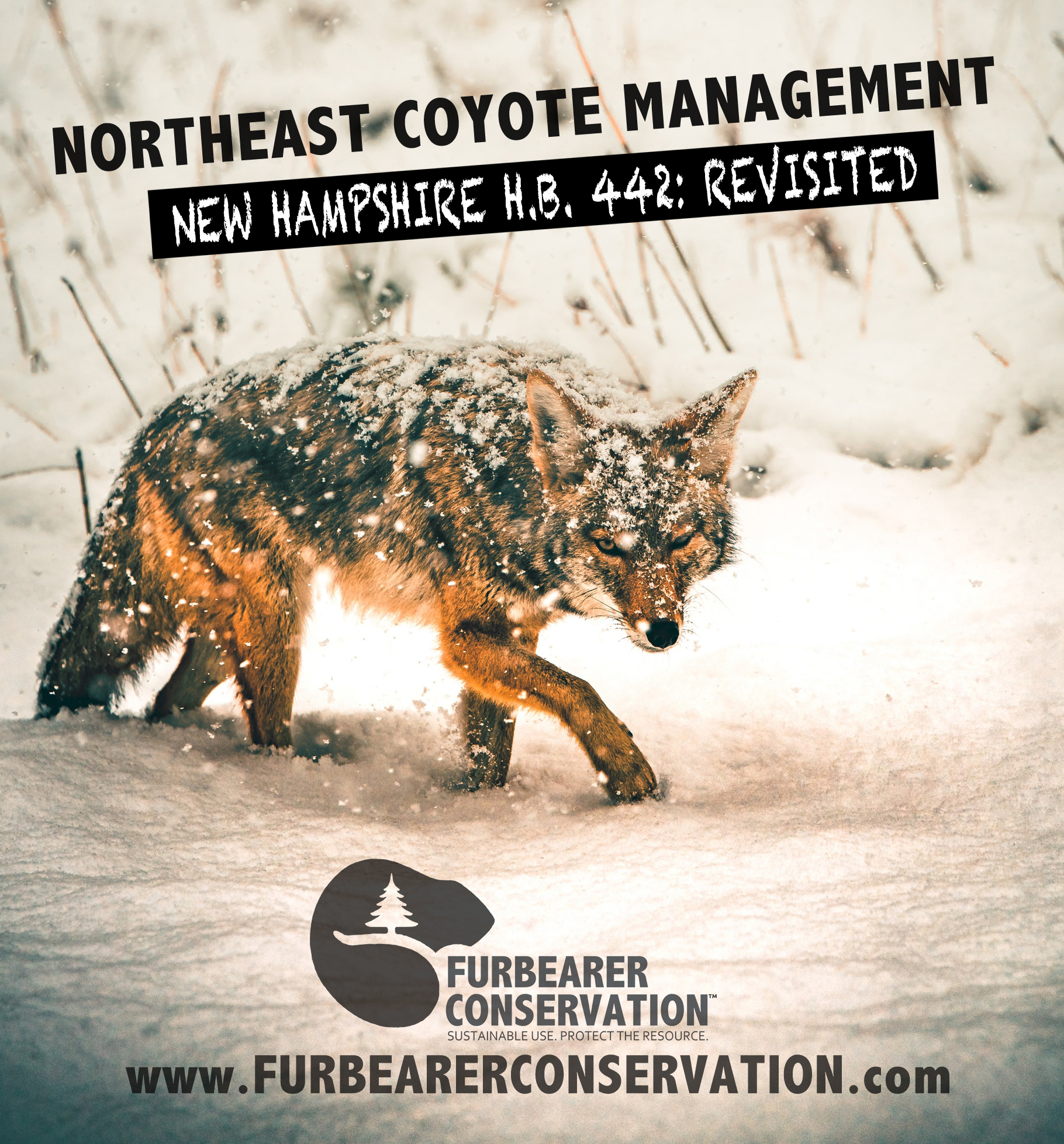As expected by many, lawmakers in New Hampshire are seeking new protections for the state’s largest wild canid - the Eastern Coyote.
House Bill 442, which has been submitted by Newmarket State House Rep. Ellen Read, would place a closed section on the current “year-round” coyote hunting season. The bill seeks to close hunting of coyotes from April 1 through August 31, to coincide with what the bill states are “pup rearing” months.
The bill has additional support from newly listed co-sponsors Rep. Mullen (D-Hills. 7), Rep. Frost (D-Strafford 16), Rep. Vann (D-Hills. 24), and Senator Ward (R-District 8).
We reported on a similar petition submitted by animal rights groups before the NH Fish & Game Department back in 2017. The Department opted to table the decision until more reputable scientific information could be gathered on the Eastern Coyote in the Northeast by wildlife management professionals.
The topic is generally polarized, with some demanding the Eastern coyote (Canis Latrans var) be considered a game species in need of a closed season; and protected status. Other NH citizens argue that the coyote is under no threat or extirpation in the Northeast, and year-round hunting is needed to curtail bold behavior and increased comfort to suburban life among people, pets and livestock.
It should be noted that the Eastern coyote is, however, listed as a furbearer in New Hampshire; with an open/closed trapping season already taking place outside of the above mentioned pup rearing months. The regulated trapping season runs from late fall through mid-winter in The Granite State, when the animal’s fur coats are primed and thick.
This latest legislation comes at a time when predator management is under extreme debate in North America. Animal rights groups and environmental protectionists have launched repeated campaigns against the management of wolves, coyotes, foxes, bears, bobcats, and cougars - just to name a few. In the case of coyotes, a growing ideology suggests hunting “isn’t needed” at all, as some contend coyotes “curtail their own breeding”. This is a concept we here at the FC have focused on thoroughly in recent years. There’s also argument pertaining to the perceived control predators have on prey sources such as mice and squirrels - which we’ve also reported on recently.
We’ve found most of these theories are taken drastically out of context from their original meanings - as we’ve discovered during years of researching in-field studies and talking with wildlife professionals. Typically, any criticism for these theories is then followed by outcry that “non-hunting” individuals are “not being listened to” by state management agencies, which in turn creates the type of legislation we’re discussing in this post. Its a process I’ve likened to the “pitting mommy against daddy” syndrome commonly found in children. But I digress…
Both Maine and Vermont (states bordering New Hampshire to the west and east) permit coyote hunting and management year round, as New Hampshire currently does. Connecticut also permits year-round hunting - through a season that runs from January 1st through December 31st. These year-round seasons have remained in place with no known ill-effects to a currently sustainable coyote population in the Northeast. The million dollar question is whether or not the hunting of some coyotes while they are raising offspring is the “right call”. Its a question I haven’t been able to answer; but some regional state agencies have furnished statements which we feel should be taken into consideration.
Vermont Fish and Wildlife states “coyote populations will continue to thrive as long as habitat conditions allow. Most coyotes in Vermont are wild and wary of people because of hunting and trapping. In states such as Massachusetts and California, where there is limited negative reinforcement from people, coyotes sometimes associate people with food (garbage, pet food, etc.). In these cases, coyotes may live around suburban neighborhoods and become a problem.”
You can read the proposed legislative bill in its full form here. Its important to note this bill is being introduced by the state’s legislature, not the state’s Fish and Game agency. To submit testimony either for or against the bill, or discuss further, you can contact members of the NH House Fish, Game & Marine Resources Committee here.
A public hearing will be held before the NH House of Representatives’ Fish, Game & Marine Resources Committee on January 29th, at 2:00pm. The hearing will be held in Concord at the Legislative Office Building, room 307.








